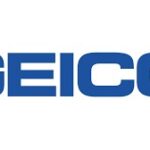Car wash businesses have emerged as surprisingly lucrative ventures, capturing the attention of entrepreneurs seeking stable income streams. The allure is understandable – a well-located and efficiently managed car wash can generate significant revenue, sometimes with a substantial degree of passive income, particularly for self-service operations. The rise of viral videos showcasing the profitability of businesses like car washes and laundromats has further fueled interest in this sector.
While some car washes offer a more hands-off approach, others, especially larger, full-service establishments, demand a more involved operational model with a dedicated staff. However, this increased involvement often translates to a higher revenue potential. Whether you’re drawn to the simplicity of a self-service setup or the scale of a tunnel car wash, understanding the financial landscape is crucial. Let’s delve into the key factors determining the cost of acquiring a car wash business and what you need to consider before making this investment.
Factors Influencing the Cost of a Car Wash Business
The price tag on a car wash business is far from fixed. It’s a dynamic figure influenced by a range of factors, each contributing to the overall investment required. Understanding these variables is essential for anyone looking to enter this market.
Location, Location, Location
Just like in real estate, location is paramount in the car wash industry. A car wash situated in a high-traffic area with strong visibility will naturally command a higher price than one in a less accessible or lower-demand location. Areas with a higher cost of living generally also translate to pricier car wash businesses. Consider the demographics of the surrounding area, the presence of competitors, and the overall economic health of the region as these all play a role in the business’s potential and, consequently, its value.
Type of Car Wash
The type of car wash significantly impacts the purchase price. Generally, self-service car washes are at the lower end of the cost spectrum, while automated systems like in-bay automatics and tunnel washes are considerably more expensive. Full-service car washes, offering comprehensive detailing and hand-washing services, often represent the highest investment due to the infrastructure, equipment, and staffing involved.
Condition and Age of Equipment
The age and condition of the existing car wash equipment are critical cost factors. A business with outdated or poorly maintained equipment may come with a lower initial price but could quickly lead to significant expenses for upgrades and repairs. Conversely, a well-maintained facility with modern, efficient equipment will likely command a higher price but offer greater operational reliability and potentially lower maintenance costs in the short term. Thoroughly inspect all equipment, including washing systems, payment kiosks, vacuums, and water recycling systems, to assess their condition and remaining lifespan.
Existing Business Performance and Reputation
A car wash with a proven track record of profitability and a strong reputation in the community is naturally more valuable. Analyzing the business’s financial history, including revenue, expenses, and profit margins, is crucial. A business with consistent revenue growth and positive customer reviews indicates a healthy operation and justifies a higher asking price. Conversely, a struggling business might be available at a lower cost, but it also carries a higher risk and may require significant turnaround efforts.
Breaking Down the Costs: What to Expect
So, how much are we really talking about? The cost to buy a car wash business can range dramatically, from as low as $100,000 to upwards of several million dollars. Let’s break down what you can expect at different price points.
Initial Investment vs. Ongoing Expenses
When considering the cost, it’s important to differentiate between the initial investment to acquire the business and the ongoing operational expenses. The purchase price is just the starting point. You’ll also need to factor in costs for:
- Equipment upgrades or replacements: As mentioned earlier, the condition of existing equipment is crucial. Budget for potential upgrades or replacements, especially for critical systems like pumps, dryers, and payment systems.
- Initial supplies and inventory: Stock up on soaps, waxes, cleaning chemicals, and other supplies necessary for daily operations.
- Marketing and advertising: Especially if you are rebranding or aiming to attract new customers, allocate funds for marketing and advertising efforts.
- Working capital: Ensure you have sufficient working capital to cover initial operating expenses, including payroll, utilities, and maintenance, until the business generates consistent revenue.
Typical Price Ranges for Different Types of Car Washes
To provide a clearer picture, here are some general price ranges you might encounter:
- Self-service car washes: These are typically the most affordable, ranging from $100,000 to $500,000. Prices can vary based on the number of bays, location, and condition. In more rural areas, you might find self-service car washes for even less, while in prime urban locations, the price can be higher.
- In-bay automatic car washes: Expect to pay $500,000 to $1.5 million for an in-bay automatic car wash. These offer a balance between automation and service and are popular in many markets.
- Tunnel car washes: These represent a significant investment, ranging from $1 million to $5 million or more. Tunnel washes are high-volume operations requiring substantial infrastructure and land.
- Full-service car washes: Similar to tunnel washes in the higher price range, full-service car washes can cost $1 million to $3 million or more, depending on the size, location, and services offered.
These are just broad ranges, and actual prices can vary significantly based on the specific factors discussed earlier. For example, the original article mentions self-service car washes in rural Southern Virginia ranging from $130,000 to $140,000, while full-service washes in more metropolitan areas of Virginia can range from $1 million to over $3 million.
Financing Your Car Wash Purchase
Unless you’re paying cash, you’ll likely need to explore financing options to purchase a car wash business. Several avenues are available:
Traditional Loans and SBA Loans
Traditional bank loans and Small Business Administration (SBA) loans are common financing methods for business acquisitions. These typically require a solid credit history, a detailed business plan, and collateral. SBA loans often offer more favorable terms for small business owners.
Seller Financing
In some cases, the seller of the car wash business may be willing to provide financing. This can be an attractive option, especially if traditional financing is challenging to secure. Seller financing terms are negotiable and can be structured in various ways.
Partnerships and Investors
Teaming up with a business partner or attracting investors can provide the necessary capital for a car wash acquisition. This approach can dilute ownership but can also bring in valuable expertise and shared risk.
Due Diligence: What to Investigate Before Buying
Before committing to a car wash purchase, thorough due diligence is paramount. This involves a comprehensive investigation into various aspects of the business.
Financial Records and Profitability
Scrutinize the business’s financial records for at least the past three to five years. Analyze income statements, balance sheets, and cash flow statements to verify revenue, expenses, and profitability. Pay close attention to trends and identify any potential red flags, such as declining revenue or increasing operating costs.
Operational Aspects and Maintenance
Assess the operational efficiency of the car wash. Evaluate the equipment’s condition, maintenance schedules, and any pending repairs. Understand the current staffing structure and employee contracts. Inquire about supplier relationships and contracts for soaps, chemicals, and other consumables.
Legal and Regulatory Compliance
Ensure the car wash business is in full compliance with all relevant local, state, and federal regulations. This includes environmental permits, water drainage regulations, business licenses, and zoning ordinances. Verify that all permits are current and transferable to a new owner.
Hidden Costs and Considerations
Beyond the obvious costs, be aware of potential hidden expenses and considerations:
Environmental Regulations and Waste Disposal
Car washes are subject to environmental regulations, particularly regarding wastewater disposal. Ensure the business has proper permits and systems in place for compliant wastewater management. Budget for potential costs associated with environmental compliance, including wastewater treatment and sludge removal. As the original article mentions, surprise sludge removal can be an unexpected expense if not properly accounted for.
Unexpected Maintenance and Repairs
Even with well-maintained equipment, unexpected breakdowns and repairs can occur. Set aside a contingency fund to cover unforeseen maintenance expenses, especially for critical equipment that could disrupt operations.
Conclusion
Buying a car wash business can be a sound investment, offering the potential for strong returns and, in some cases, passive income. However, understanding the true cost involves more than just the purchase price. Factors like location, type of car wash, equipment condition, and operational efficiency all play a significant role. Thorough research, due diligence, and careful financial planning are essential steps in making an informed decision. By understanding these factors and conducting comprehensive due diligence, you can navigate the process of buying a car wash business with confidence and set yourself up for success in this potentially lucrative industry. Consider consulting with experienced professionals in the car wash industry or business brokers specializing in car wash businesses to gain expert insights and guidance throughout your acquisition journey.

